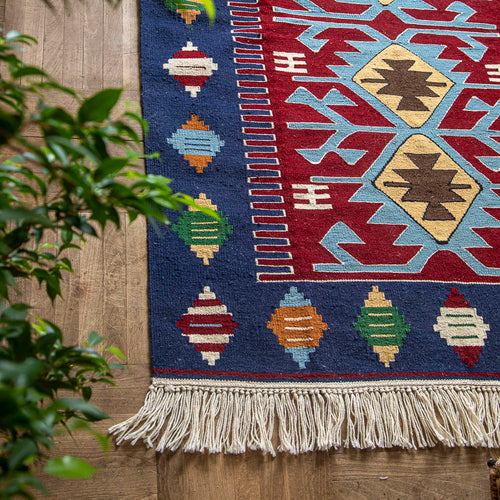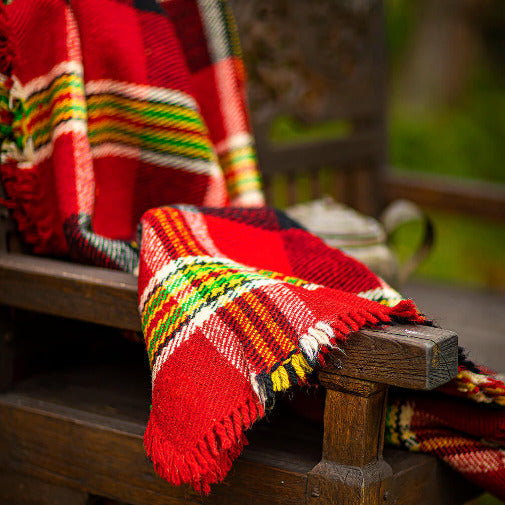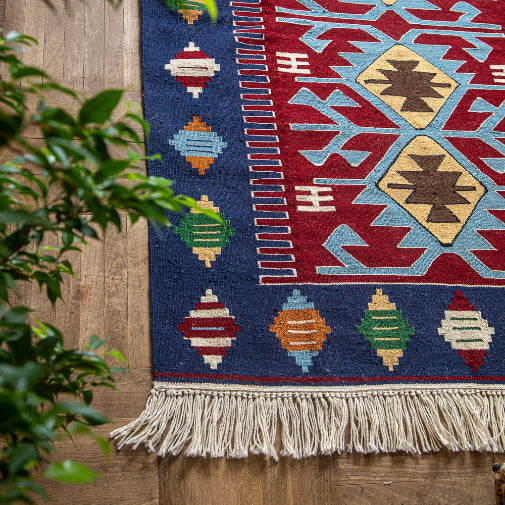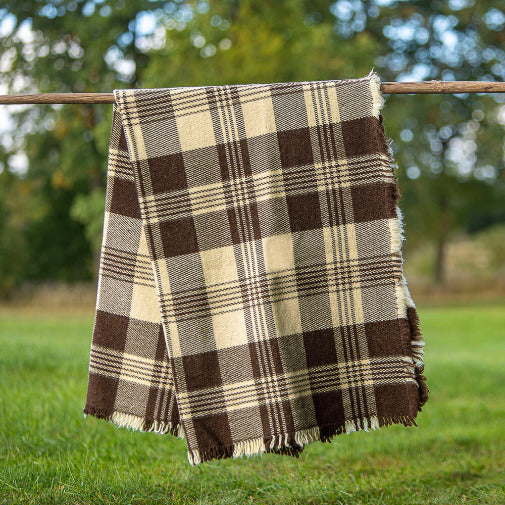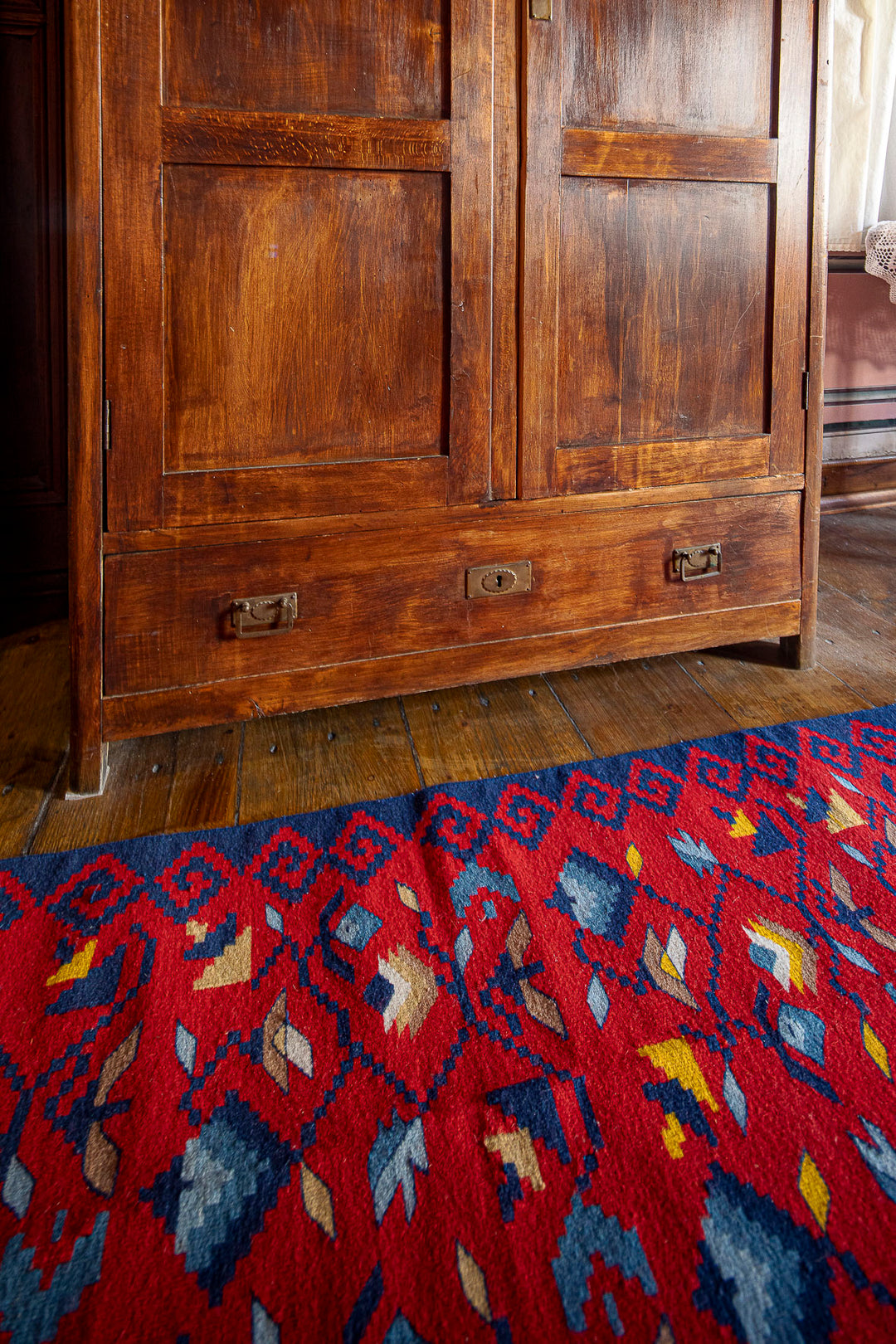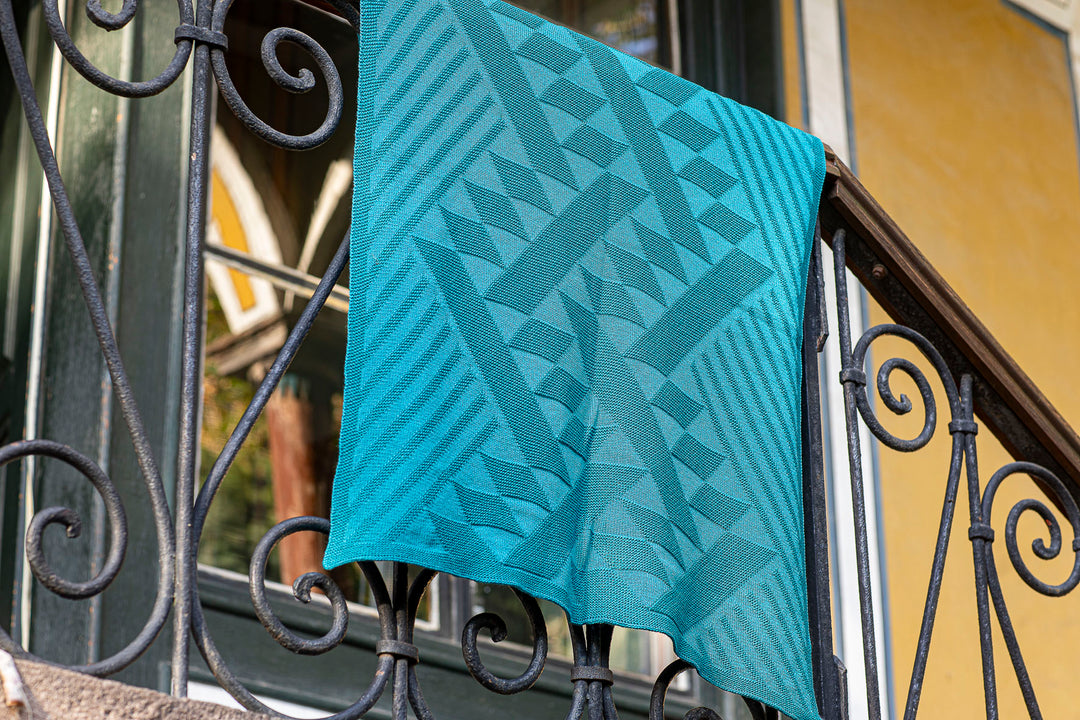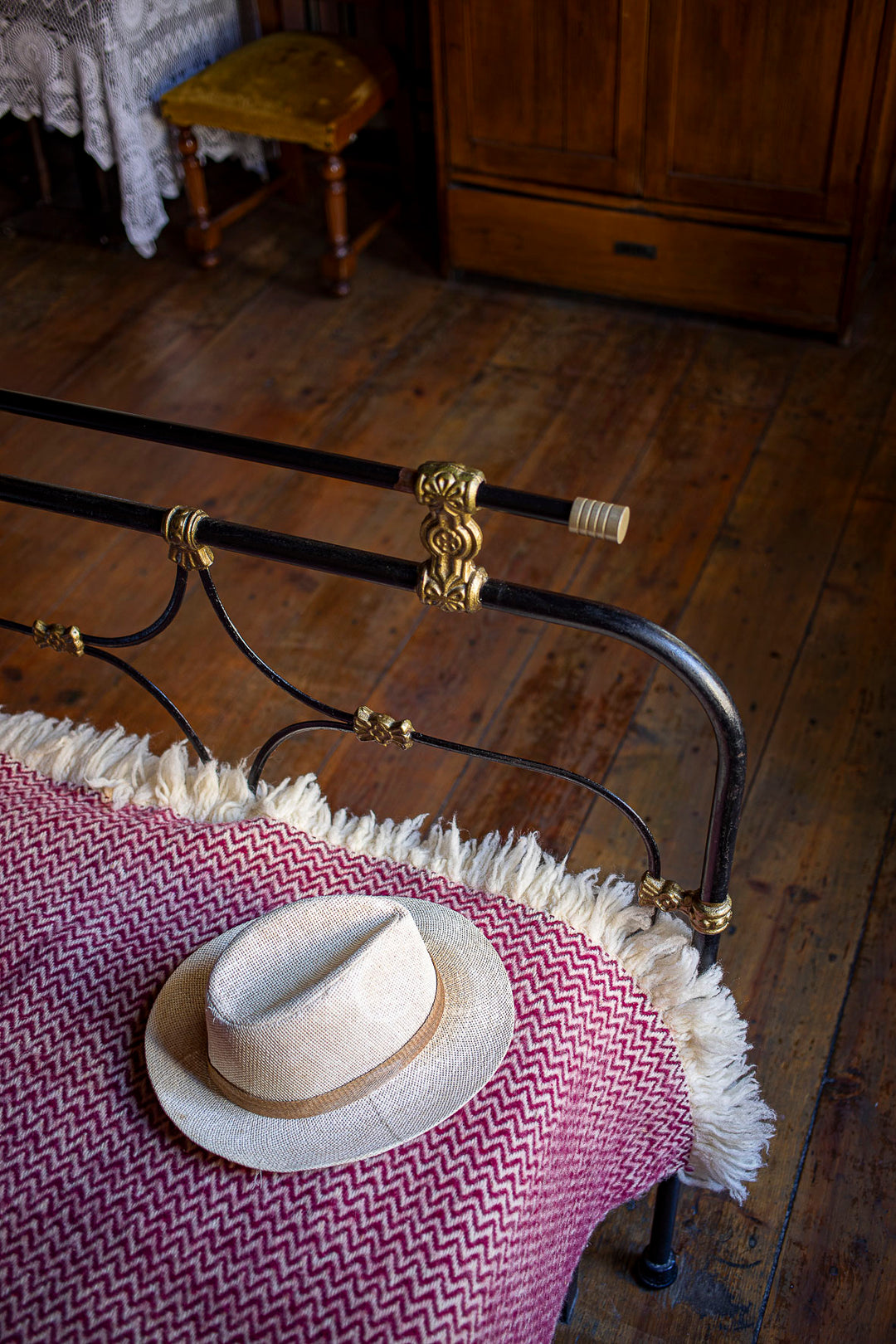Our family history
From mountain valleys to the sea coast
During this interwar period, my grandfather and namesake Georgi Bechev began trading in wool products from the Rhodope Mountains in southern Bulgaria, where he himself came from. Several times a year, he travelled with trade caravans to the town of Gyumyurdzhina (today Komotini, gr. Κομοτηνή), located almost on the Aegean coast. Here he sold Rhodope wool blankets, throws, Halishe rugs or fabrics and yarns to local Bulgarian, Greek and Turkish merchants. The goods then travelled on to ports in Europe and the Orient. For a long time, this was how wool products from the Rhodopes found their way onto the shelves of shops in Istanbul and other large cities.
The first brick-and-mortar wool shop
Later, my grandfather opened his own wool shop in the town of Kardzhali (bg. Кърджали) in the foothills of the Rhodopes. He is posing in front of it in this photo from our family album. At that time, Kardzhali was an important crossroads where major roads from the Rhodopes and Thrace converged. Therefore, a large part of the production from this famous wool-producing region flowed here, regardless of whether it came from domestic weaving workshops or larger factories.The catastrophes of the 20th century
However, this idyll was swept away by the dramatic events of the 1940s - World War II and the subsequent bloody communist coup. In their reckoning with the former elite of the Bulgarian Tsardom, the communists not only murdered tens of thousands of innocent people and destroyed hundreds of thousands of lives. They also destroyed private enterprise, including my grandfather's shop. He found it very difficult to come to terms with the nationalisation of his business and sincerely hated the communists until his death. Another consequence of the coup was the complete closure of the passes leading south to the sea and the erection of an iron curtain on the Bulgarian-Greek border. Until then, this part of the Balkans had been easily accessible, whether it was administered by the Ottomans or later by the Greeks and Bulgarians. The Rhodopes lost their traditional market for their products and were forced to reorient their production to other markets. My grandfather never returned to Gyumyurdzhina.Ottoman echoes in southern Bulgaria
His wife, my grandmother, also worked with wool. In Kardzhali, she ran a semi-state-owned shop selling Rhodope blankets, throws and Halishte rugs. It was also a wool purchasing station, so sheep farmers from far and wide came here. They handed over the wool to my grandmother in large jute bags. She weighed it on a large table scale and then assessed its quality and purity. Knowledge of Turkish was essential, as a large part of the population of the eastern Rhodopes is Turkish, and in the past they often did not speak Bulgarian. Negotiating the quality of the wool used to be very heated, similar to haggling over prices at an oriental bazaar. My grandmother was skilful, but at the same time had a sense of justice. She was greatly respected among the local Turks.
The Balkans or the Orient?
My sister and I often spent the whole summer in the Rhodopes. I felt right at home in my grandmother's wool shop. I remember how once a month a lorry would arrive, from which we would unload new blankets and then fill it with sacks of wool for production. My grandmother's shop always seemed to me to be the most important place in town, the centre of its activity. Perhaps only the nearby pazar, the vegetable market, could rival it. For me, The magazina (the shop) was the beating heart of Kardzhali, where not only those who wanted to buy and sell wool went. Over coffee and to the singing of the muezzin, all the conceivable problems of this multi-ethnic town were discussed here. I also remember my grandmother's Turkish assistant Beysim, who wore black woollen trousers called pоturi and a beret. Both were distinctive features of Bulgarian Turks.
Over time, the fame of my grandmother's shop began to spread beyond the country's borders. Turks from Istanbul and Bursa came in large numbers to equip their daughters with the appropriate dowry. Due to waiting at the border, they usually arrived in the city in the afternoon, when the whole of southern Bulgaria was observing siesta. Whenever visitors from afar called her from the gate behind the wall of fig trees and roses, my grandmother would interrupt her siesta, go with them to the shop, and offer them the best of Rhodope wool in the 40-degree heat...
Childhood in the Rhodopes
From Kardzhali in the eastern Rhodopes, we always travelled to visit our great-grandmother in the central Rhodopes, where it was always a little more bearable during the hot Balkan summer. The journey there in a creaking bus along countless serpentine roads lined with beautiful meadows, deep forests, ubiquitous tcheshma, i.e. stone drinking fountains with refreshing water, and ancient bridges arching over sparkling rivers, was an experience in itself. It ended in a village full of tall stone houses with wooden upper floors. A cherga, a woollen blanket or Halishte rug, hung from every window. One of these houses was home to baba Dora, my great-grandmother, who lived to be almost a hundred years old. On the ground floor, she had a small home loom on a Halishte and carved cupboards built into every conceivable drawer, where she kept her colourful blankets and bedspreads carefully stacked. At baba Dora's, my sister and I woke up every morning to the ringing of sheep and cow bells from herds passing along the path around our house into the deep valley of the Arda river. In the evening, they returned along the same path.
Balkan wool in Europe
As the years passed, I began to realise that wool in the central Europe was not as commonplace as it was in the Balkans. Blankets, Halishťe rugs or kilims, which I had always considered a natural part of life, seemed to be almost non-existent in Central Europe. And so, I finally came up with the idea of bringing the best of Rhodope wool production to the Czech Republic. In the spring of 2008, two friends – Tomáš and Honza, who were my business partners for several years and remain my friends to this day – and I set off on our first business trip to the Rhodopes and Stara Planina. Our travels around Bulgaria were rich in colourful stories. Importantly, however, they laid the foundations for long-term partnerships and friendships that continue to this day. I personally know all the weavers and kilim makers who produce for us. Without this, trading with the Balkans would not only be boring, but often almost impossible. Balkanova owes this to demanding negotiations over countless cups of coffee. And even though Balkanova is gradually expanding across the Balkans and Asia Minor, you can be sure that it will always offer you only first-class products made from natural materials with a strong personal story and a clear pedigree, produced using methods proven over generations and environmentally friendly techniques. Products with a large or even absolute proportion of handwork. Because family tradition binds us, we strive not to disgrace it even now, in the 21st century.


